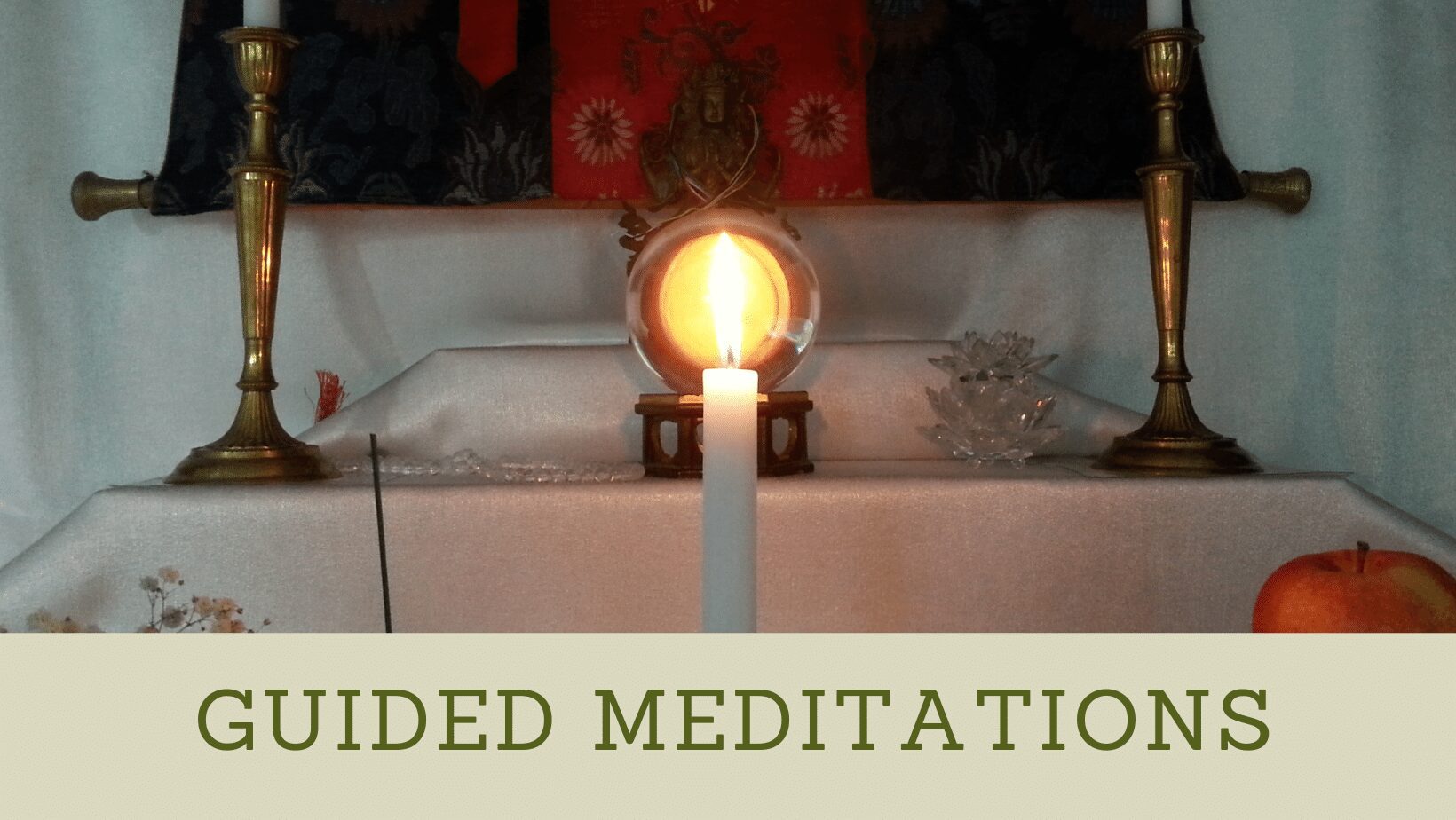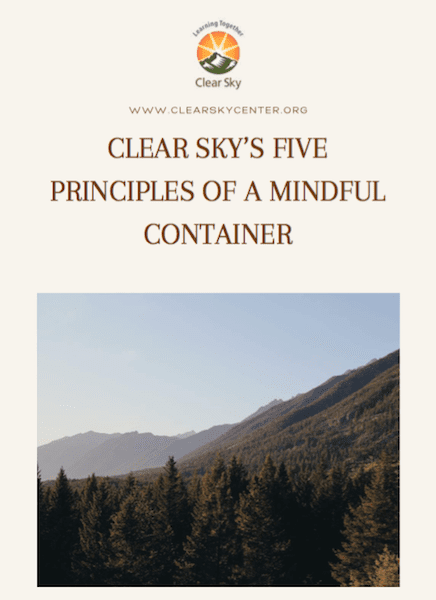Our Tips for When You're Starting a Meditation Practice
We got together to come up with meditation tips to support your practice, especially if you're new to meditating.
We came up with two main things we’d like to share here:
- A guided meditation, and
- Meditation tips in the form of a list of do’s and don’ts for setting up a consistent practice.
1) Guided meditation
If you’re ready to jump right in and meditate with us, enjoy this video of a guided group meditation with
- a warm up
- opening instructions
- a five-minute meditation (pause and set your own timer for a longer meditation)
- a group meditation review process.
TIP: To do a longer meditation with this video, pause when the meditation starts and set your own timer. T–hen rejoin at 9:21 for the beginning of the review process.
2) Meditation Tips: Some Do’s and Don’ts of meditation
The Do’s:
1. Set a regular time and day to meditate
“For example, I will meditate at 6:45 pm, five days a week. While being busy seems to be the norm in the 21st-century, there are specific things you can do to support your practice. In terms of meditation tips, setting a time of day has been the one big thing that has made the most difference in me building an ongoing meditation practice.”
2. Have a dedicated space to meditate
“Since early on, this has been very supportive for me. In fact, establishing a designated space is almost for sure why I developed a meditation practice. The visual reminder has been very helpful to honor my intention each day.
I put only things there that relate to the meditative space, like my candle, some crystals, and a picture of my teachers. I don’t even set things down there temporarily, a mindfulness exercise or discipline to reinforce how important the space is to me.”
3. Do some vigorous activity before meditating
“Vigorous for me is jumping around for a while, trying to move every part of my body at least once, and then doing a bunch of jumping jacks. Throw in some jaw movements and sounding, too.”
“I always appreciate when others remind me to do this, because I clearly see the sense of “stuckness” in my body that was making me resist it. It’s like I’ve activated the meditation, like when that tidiness expert Marie Kondo taps all of the books to wake them up. Moving always brings me into my body, makes me more joyous and light and awake…which is kind of the point.”
This is a great meditation tip, but it’s easy to skip over when we don’t feel like it. So, yes, shake off any of that physical resistance (spiritual doesn’t mean quiet and serious all the time), and start the meditation in a good state with some vigorous movement.
4. Remove distractions
Your meditation is not something you want to interrupt for any reason, once you’ve decided to sit for a certain time. Your intention is everything, so being open to being interrupted sends a message to the depth that you’re not serious:
“While avoiding distractions in the digital age seems to be harder and harder, there are specific things we can do. Of course, it’s normal if one’s mind wanders while meditating. What I mean is to get rid of unnecessary distractions. Put the phone on silent mode and ideally in another room if you don’t need it there (having said that, I use mine to time my sits using an app called Insight Timer).
If you decide you’re meditating, tell your family or housemates how long you’ll be unavailable. Make a mental note that any messages or tasks can wait until after you sit, so you’re not tempted to worry about them. In other words, carve out the time and space for what it’s intended – meditating.”

The Don’ts–What’s good to avoid when you’re meditating?
1. Don’t grab onto good feelings or push away bad experiences.
Sometimes it hurts to meditate, especially early on while getting used to sitting posture. It can also be relaxing and blissful as you let go of the stress of the day and build calm.
Build the skill over time of simply being with the good or the bad. It will take practice in noticing what the mind favors and is attracted to or what it abhors or is averse to. For each of us, it is an individual exploration.
It’s fascinating as it unfolds. Get interested in boredom and it changes. Go into pain and you’ll see that it is not static, it morphs and sometimes even goes away.
2. Avoid expecting meditation to give a certain result
Many think meditation simply leads to a feeling of peacefulness. It can, and it can lead to peacefulness in one’s outlook in life, too.
But not every meditation leads to peace, each time. Recognizing this, we can be open to the experiences that arise. We need not cling to or dismiss any experience, as long as we recognize each experience for what it is.
So, one of my best meditation tips is that, if we think of meditations in terms of being as good as or better than the previous ones, we’ll get discouraged.
3. Don’t judge experiences as “good” or “bad”
Various thoughts and feelings will arise in meditation, both mentally and in the body. Yet we want to stay away from thinking of “good” or “bad” meditations.
One way we can do this is to have a system to review each meditation objectively. One part of this is to name whether the experience was generally pleasant or unpleasant (and then move on, not think on it further). This is one of my key meditation tips – you can see an example of a full review in the above guided meditation.
“If we don’t follow along with the arisings, whether these are judgements, feelings, or thoughts, they take care of themselves. There’s nothing to fix.
Then, we’re more open to what is happening in the (next) moment because we are not stuck in the echo of that previous moment. Develop this skill on the cushion because it is a very useful one in life. Try it and see. ‘Am I more accepting of what my boss says and less reactive?’ ‘Am I more spontaneously compassionate and helpful?’ ‘Do negative emotions pass through more quickly?’ It’s a big yes for me thanks to my meditation practice.

We hope there was something useful to you here. Look out for more meditation articles, videos, and other resources from us soon.
Guided Meditation led by Duncan Cryle and recorded at Clear Sky Meditation Center in January 2019.
Check out our local groups for live or online classes near you. (Calgary AB, Nelson BC, Toronto ON)
Meditation tips – Contributors: Maureen Smith, Dan O’Brien, Geoffrey Haynes, and Richard Nathaniel
Edited by Andrew Rogers
Is Your Life Set Up To Support Your Spiritual Aspiration?
Your environment and all the other things in your life contribute to your state of mind.
Clear Sky’s 5 Principles and our Integrating Mindfulness course may be able to help.
Guided Meditations
Regular meditation is the foundation of a strong spiritual practice.
Simply join our mailing list to get access to a growing number of online guided meditations and other resources.
If you’re looking for online guided meditations, we’re beginning a library of resources. Simply join our list to get access.
Free guided meditations can be a great way to start practicing. A regular practice – such as up to six days a week at a regular time if possible – gives you a solid grounding. Meditation promotes calm, reduces stress and anxiety, and gives you the space you need to keep things in perspective.



